Books, Philosophy, and the Irreducible Rascality of Alan Watts
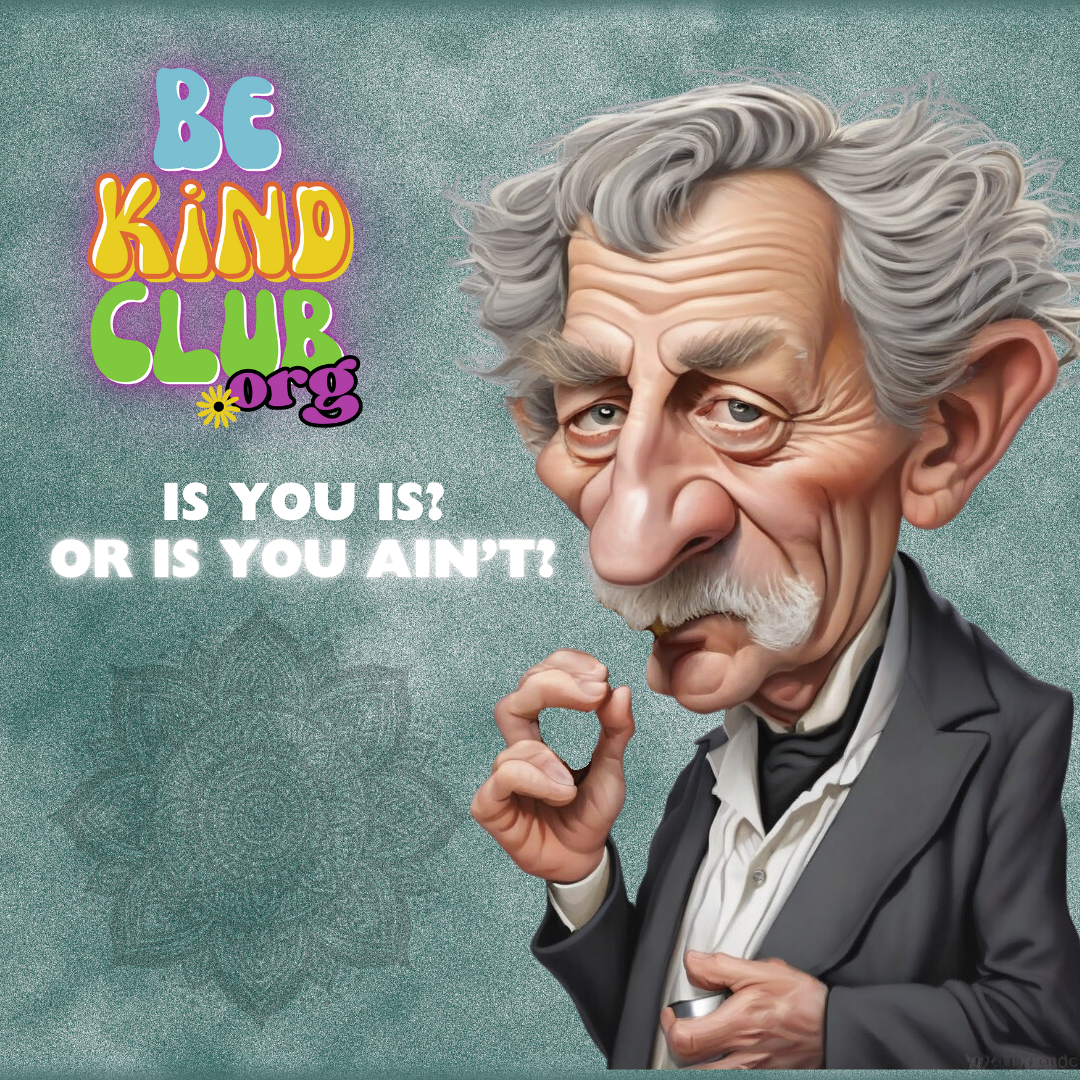
In case you've wondered how on God's green earth someone goes from writing the biggest, loudest, most obnoxious car dealer ads in the history of big, loud obnoxious car dealer ads to writing a neo-spiritual-voodoo-curious epic poem in the style of Dr. Seuss, here's the rest of the story.
Listen in as I chat with Lindsay Schultz on the Spine Bookcast about "Here Come the Nothing Heads" and my fellow poet philosopher Alan Watts.
SUMMARY
Terry Lancaster, author of "Here Come the Nothing Heads," discusses his inappropriate early childhood reading habits, starting with encyclopedias and progressing to Stephen King. He highlights his transition from writing radio ads to children's books influenced by Eastern mysticism and Alan Watts. He shared his journey into writing, including his self-help book "Better Self Help for the Rest of Us" and his exploration of the concept of "no self."
TRANSCRIPT
Lindsay Schultz 0:01
Thank you for tuning in to another episode of the Spine Bookcast with your host me, Lindsay Schultz of the Spine Bookshop today. Our guest is Terry Lancaster, author of "Here Come the Nothing Heads," which is absolutely lovely, and it's a great little poetry book,and it's just fantastic. Terry, how are you doing today? How are you I'm great. Thank you so much for joining us today, but I'm good. Well, let's get into it. How did you get into reading?
How little nerdy book worms grow into poet philosophers
Terry Lancaster 0:40
You know, I was, I was kind of a weird kid. I started reading early, and I had an aunt. I remember my mom used to we both my aunt's house were like, Sunday for family dinner, and everybody else would go, go talk, be doing things and sitting in the kitchen yelling. My aunt had the encyclopedia set, and I would go into the bedroom, grab a copy of the encyclopedia and just read one book while I was there other Sunday. So I started reading tremendously early, and I was, I was, I was a bookworm as a kid, I kind of grew out of that a little bit, but maybe not so much. I was a gracious for you as a child. Oh,
Lindsay Schultz 1:21
me too. It's really interesting though that you started with the encyclopedia. My grandfather and he did this with my mom too. If we ever wanted to know what a word was or how to spell a word, or what it meant, he had this massive, like, 25 pound dictionary that would sit on this book, stand in his office, and he would just point, and he would make it for a lookout. And I've learned so many words that way growing up that you were reading when you were young. Did you have anything that was like,
Terry Lancaster 2:04
that was the book for you. I started. I started reading right past kids books and everything. I read The Godfather, I think when I was in fifth grade. Then I started reading. I started reading Stephen King books. And I was, I was small child, and I think I read the stand when I was probably like a freshman in high school, maybe a sophomore in high school, with that book. Literally, I read that book like every year for for 10 or 15 years, and then they came out with the other bridge versions. But the stand was definitely for any time for the last, you know, 30 or 40 years, he would yield pass hold of my favorite book, and probably still was my favorite fiction book, I would probably say the same.
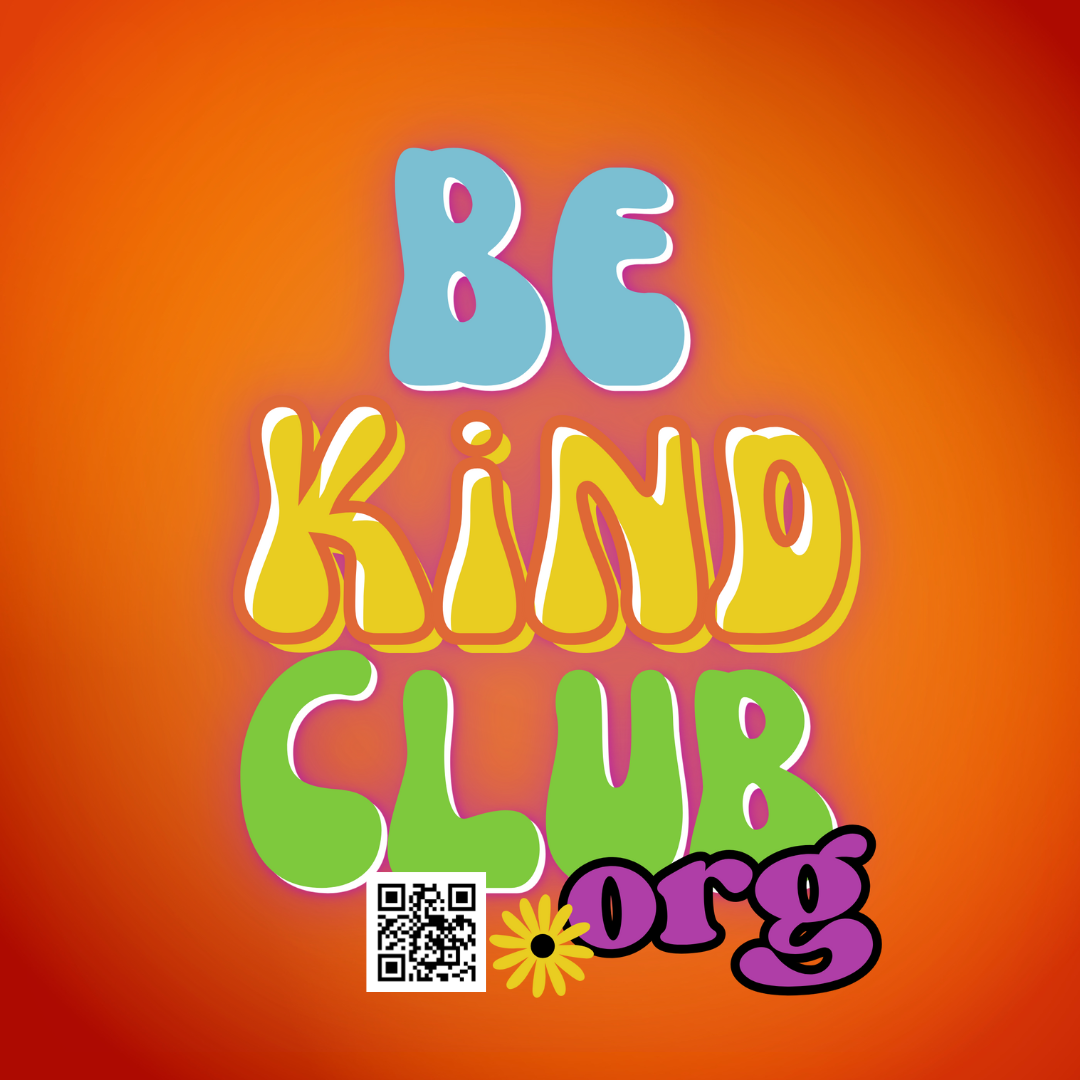
Welcome to the Be Kind Club.Abiding in kindness for ourselves, for others, for the world around us.Join the club.The Be Kind Club aka The Coalition for Human Kindness publishes books, audio books, and a podcast showing how kindness can change

The Spine Bookshop is having its 2nd Anniversary celebration this weekend.Dozens of local authors will be there telling their tales. We all know it's Amazon's ocean, but owner Lindsay Schultz and The Spine are a liferaft for Middle Tennessee's local authors helping

Yesterday I watched two deer nap for an hour, held a tadpole in my bare hands & made up close and personal eye contact with an oddly curious squirrel all while sitting on my deck less than a mile from
Philosophers and plowmen, each must know his part.
Lindsay Schultz 2:49
That's really funny that you say that because I, I got in trouble my freshman year of high school, and I was reading the stand, and some kid was making fun of me, you know. And if anybody has read this scene, you know how thick that book is, right? He was making fun of me for reading it, and so I threw it and hit it in the face, yeah, and I got in trouble for it, which was super hilarious to me. And yeah, I you know, and whenever you do anything like that, they're like, why did you do that? And I think my response was using it thick. I don't necessarily think that that went over as well as I thought that was going to go. Yeah, I just parents got a phone call about that. So I have a tie in with the stand as well. So it's one of my favorite books by now. Have you ever read sail on the block? Everything I read, everything
Terry Lancaster 3:57
Stephen King wrote up until he like, the first time he retired about 15 years ago. But I went for years. Every time he put out a new book, I read it and say the Salem slot was Salem's Lot was one of only two books in my entire life, because I read a lot. I mostly read R as I don't really read much art or science fiction much anymore, but sales lot is one of two books that I read that I had to put down in my life and go but you know, maybe what I'm just going to I'm just going to take a break. I'm not going to be reading for a few minutes. That's just a little too much right now, and so, so say the Salem, the Salem slot, I had to go down and come back. You know, during daylight hours when I was outside, that was safer than speaking up and reading the other one was, was Hannibal by Thomas Harris. Oh, God, that
Lindsay Schultz 4:55
movie is the movie, the whole book series. That whole thing is outstanding. I love that you said the whole series. I agree with saying blood and having to well, can we're done? We I need a moment.
Terry Lancaster 5:14
And I think that that's one of the
Lindsay Schultz 5:17
things I like about books is that you can have reading something and the book is so good that it just like,
I need a moment. This is just freaky right now. And I love that books and elicit that kind of emotion. I
Are you still there? I am. So yeah, I do you have a favorite book now, as
Terry Lancaster 5:53
an adult, as author, my favorite books are the ones I've written. I love my books. They are my babies. And here comes another thing. Is my It's definitely my baby right now. But I've read a lot more nonfiction, probably for the last 10 or 20 years. For nonfiction books, there's a book called there's a book called Stumbling on Happiness by a Harvard psychiatrist. So actually, a combination of two books, anybody guys that ever done, someone asked me what my favorite books are lately. These are the two books I tell Stumbling on Happiness. Daniel Huber, he's a Harvard psychologist, and the book is about, it's about finding happiness where you least expected someone's unhappiness. And another one. There's a book by Nate, a book, actually a couple of books, one called The Black Swan and one called Fooled By Randomness, that basically tell you that everything you think you know is a product of odds and chances and odds and chances are it's going to be much different than what you think. This is what introduced me to the concept of the narrative fallacy in real life, especially readers, we spend so much time chasing the story and story so fundamental to the way we see. Stories so fundamental. Story is a native language of our brain. That's what that's why writers get so involved in their stories, but stories so integral that the saints concept is that sometimes in the real world, we're actually more often than not, we're making up the story. We're crafting the story to fit what we wanted to believe. Instead of taking the elements from from the real world, we take various elements from the real world, and we build a story to fit those. And then, you know, sometimes it fits, sometimes it doesn't, but we see the world through a narrative fallacy. So the combination of those two groups of us creating our narrative fallacy and Stumbling on Happiness, if I need to, where you least expect to kind of change the way I view the actual, real world, I can
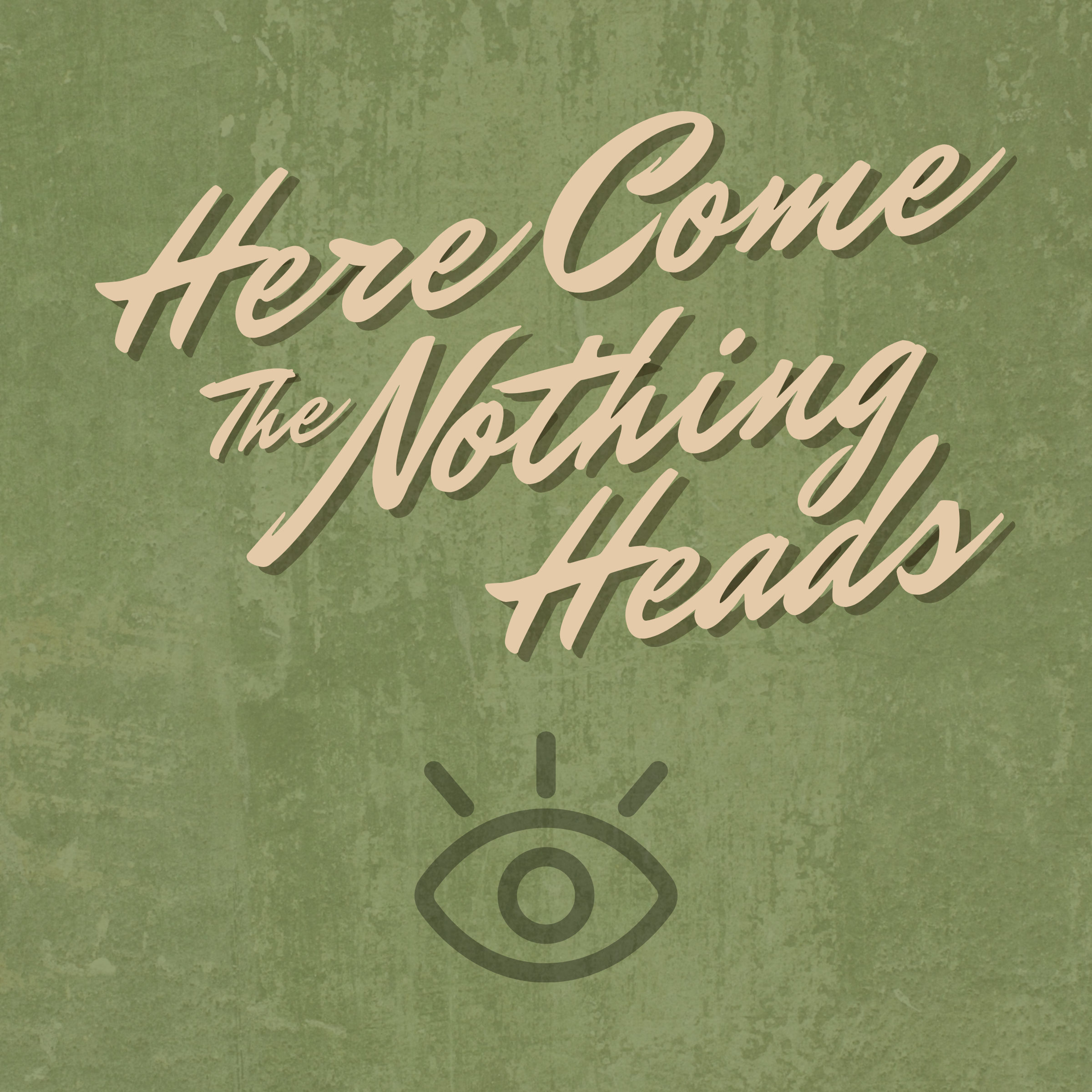
Here Come The Nothing Headswritten by Terry Lancasternarrated by Edoardo Ballerinipublished by the Coalition for Human KindnessAn epic poem for children of all ages, Here Come The Nothing Heads tells the tale of Sneezy McSneezerson, Grouchy McGroucherson, and Fluffy McFlufferson

Signed copies of the best selling zen fairy tale Here Come The Nothing Heads are now available at Landmark Booksellers in Franklin, TNIt just doesn't get more Tennessee than this.Landmark Booksellers is housed in the oldest commercial building in Franklin,
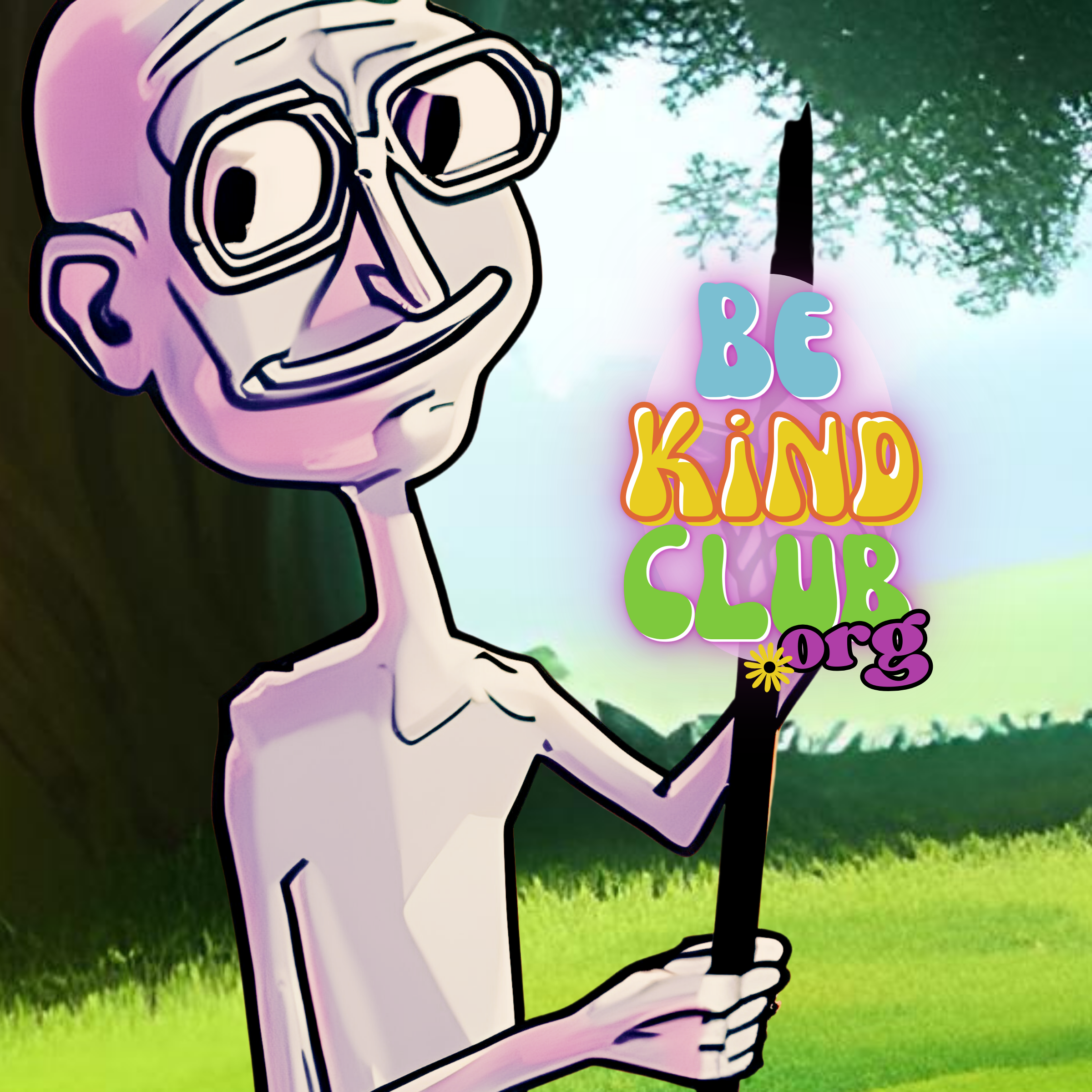
Tune in to these zen audiobooks and tune out the noise that keeps you from finding your way homeHere Come The Nothing HeadsWritten by Terry LancasterNarrated by Edoardo BalleriniPublished by the Coalition for Human Kindness.Last year, I went down the
The philosophies of narrative fallacy, infinite-sided stories, and the kaleidoscope of the Gods
Lindsay Schultz 8:03
see that the whole viewing things from the story and narratives and because, I mean, even though, like, we have conversation with people, it's not just, Hey, let me tell you something. It's Oh my god, I got the best story, you know. So I can totally see what you mean about about things being a narrative, and there's always two and we are in the phrase, there's always two sides to a story. So I tried, I can kind of see what you're saying with that.
Terry Lancaster 8:31
Yeah, there's actually infinite size the story. And the thing that got me this is especially the same It was basically a lot had to do with the stock market. So it's very technical, but if you're watching any newscast, especially if you, if you watch the newscast that they get to the part where they're predicting about the the stock market, they're talking about the stock market, and 111, talking hit on TV, will say the stock market went up 100 points today, because that was and he turned it over to another cast that there's a the the stock market only went up so many points because this thing and that thing and the other thing, and everyone's making up the story to tell what happened. Instead of just telling what happened, they're making up the story when they actually have no idea. It's all it's all a mix. There's a million signs to it. So in order to tell the story, you gotta pick a team, right? That's what everyone does. They pick a team, they pick a sign, they pick a story. I
Lindsay Schultz 9:25
think that's, I think that's a really fair assessment of how things are done. I really do that's, I hadn't thought about it that way before. So I want to talk about your book here, from the Nothing ends poetry book. It is, how did you come up with that?
Terry Lancaster 9:46
I spent the last 40 years of my life as a writer. I got a degree in journalism, I went to work in radio, and I've been writing mostly 62nd blurbs for radio spots for the last 40 years. I started writing books. I said, I'm going to, I'm going to, I'm going to write. Imma write 50,000 words, I said, like a dawning task. But I wrote a couple of 50,000 word books.
But I I sat down, and it just occurred to me, I spent, I spent so much time the last four years writing little blurbs of things for the ear, right? And that is really where my talent is, writing these these brief inside phrases that become kind of memorable and repeatable. And people come into a car dealership and say, Nobody beats Bob Jones or nobody. That is so I've been writing for the year, for a long time. And I had a, I had a client who wanted me to write a Doctor Seuss commercial as a art dealer in North Dakota. He wanted me to write a,
not, not a doctor seuss commercial. It was, it was like a Grinch commercial. We wrote a commercial for him around Christmas time, like in the style of the bridge, I guess. And he and I wrote it. I said, Hey, I like that. And I enjoyed that. So I told my wife, I said, I'm going to write a children's book in the style of Dr Seuss. I like writing for the year. I like writing the the brief things. And I started writing it just as a nonsensical Doctor Seuss book. And at the same time, I was listening, listening to, I've been listening to a lot more books later than reading, I was listening to a lot of actually, a lot of Buddh books, a lot of Zen books, a lot of Neo spiritual books, Eckhart Tolle and Alan Watts and that sort of thing. So I know when I started writing this children's book in this nonsense with Dr Sue style, as I as I started writing, it kind of morphed into a book that maybe Eckhart Tolle would write it, or something that out of a lot of the concepts from Alan Watts, they kind of all got mixed into there, and it turned into something that I really, really wasn't expecting when I when I started writing, I was just writing it for the experiment of writing, and it turned into a public act. Says, Dr Seuss meets the Dalai Lama meets the Duke from bikle Basil.
Lindsay Schultz 12:15
I love that you mentioned Alan Watts and the pickle bass. Even the same like conversational discussion, because I love both of those. I like the fact that you mentioned Ella and Alan Watts and my brother
and I con i read one of his books, and I really like the way he talks about things. And you mentioned
one of my favorites, takes a lot of a lot of
Terry Lancaster 13:00
the Eastern mysticism stuff, the Buddhism, Hinduism and Taoism, the stuff that Alan Watts talks about is so exotic and mystical to the to the Western here, to somebody from Nashville or Tallahassee talking about those things. Or it's a little outlandish, but Alan Watts takes them and takes, kind of takes the smoke and mirrors and chanting gurus and everything out of it, and just talks about it like, he talks about it like a like a stone 60s college professor, which, I guess what he was. So it's not, it's not completely like two people's off, but it's more local than those months chant, um, kids does is actually takes a lot of the concepts that Alan wants on Alan wants all stuff, and expresses them in a more fundamental ear friendly way than they'll reach The hearing. Oh, absolutely,
Lindsay Schultz 13:58
I absolutely agree with you, and I remember the first time that I heard anything by Alan Watts. It was something I heard on Tiktok, and I remember that it was just like and it was his voice that someone had. I and put onto like music or something like that. And I just remember thinking, Oh, my God, that's literally, like the best thing I've ever heard in my entire life. And so I you know, but I just remember thinking, we're going to get a train here in just a minute. So so everybody that knows the book shops next to a train. So you're going to hear that. So we're going to take a pause, and there you are. I'm literally maybe 50 feet away from the train track. I absolutely love it. It's so much fun. What would you say to Alan Watts has, like, shaped how you write and how you read and
Terry Lancaster 15:12
that kind of stuff. Well, I think the summary, the fact that Alan Watts was part of my transition to audiobooks, you know, you talk about the Tiktok saying, that's, that's where I first got introduced to Alan Watts, too. You can see these. Little 15 second Tiktok videos, or, you know, five minute YouTube videos that someone's mixed some music to, and they take this little, this little blurb out of Alan Watts, and it's not and it's interesting, and it's hippie dippie, and it's a lot of stuff, but the meat of it was because I saw some of those, I said, well, that's kind of inner kind of interesting. Wonder what his books sound like, and most of his books, they end up taking, like, a two hour lecture. He would go do these seminars and get a bunch of the hippies around. They'd sit around for two days, and he would, you know, he would talk for two straight days about whatever he wanted to talk about. But if you go into basically some of his seminars where he gives a full 45 minute presentation on something, and it explains it is more and more educated, more detailed and not more not more lofty, and it really starts to sink in some of the things that he talks about, about the way, the way the way things work, the way the world works, the nature of reality. The
Lindsay Schultz 16:23
first thing that I ever heard about Alan Watts was when he said something like, and I'm going to read this quote, and I'm not going to read the whole thing, but I'm just going to read some of it. Well. Now really, when we go back into falling in love and say it's crazy falling, you see, we don't say rising into love. There is in it the idea of the fall. And it goes back, as a matter of fact, extremely fundamental things that there's always a curious why at some point between the fall and the creation. And I remember when I heard that, I just thought I had never, ever, ever thought of anything regarding love like that. So I say that to go back. And it's my point that when you read something, sometimes like what you did with ala wand and Dr Seuss and your story, your poetry, you read something and it just, you have to sit there and think about it for a minute, a minute, because it literally just makes your brain gotta go, because it just hits you in such a way. It's one of the things that I love about reading so much.
Terry Lancaster 17:36
Well, I think one of the things reading a lot of times this is, this is very definitely an ALA Watts concept and a Buddhist concept too. Is the reading and the words, they're not the thing, right? We the word, the words aren't the thing. The story on the paper isn't the thing. The menu is not the meal. That's an Alan Watts thing. The media is the video is not the meal. The map is not the territory we get caught up in and seeing them, and you sing the descriptions to hearing the hearing the story. But there's always something deeper that the words point to the truth. The truth is behind the story. The truth is behind the words, and the story can only point there. So that's, that's the beauty of, of any, any, any writing, is that there's always, there's always the possibility for that moment of clarity when it all clicks and go, Oh, that's what's behind that. That's, that's the truth behind the narrative.
Lindsay Schultz 18:36
I think, too, that you've been taking a book, say, To Kill a Mockingbird, because if anybody's listening to this podcast, you know, that's one of my favorites, and you can hand it to five people, and have five people read it, and each person is going to come away with something completely different from that book, like their experience with that story is going to give them Something that is completely different from everybody else. And I also to go further to that, you can take those five people and have them read that book at different stages of their life, and they're going to get something completely different from that book, depending on what's going on in their life at the time that they're reading
Terry Lancaster 19:22
that I said I got, I got an email the other day. I actually texted for a friend of mine. Said, Hey, I was just talking to someone about your book here nothing. Is that a question for you? Is this book a children's book or what? And I go, Well, yes. I go, Listen, I told them it was a children's book, and they said it's like all this other stuff. And I said, Listen, it's, it's, it's whatever you want to be. She said, I thought it was just for amusement. I said, Well, it is for amusement, but there's more. And she said, Well, what's it about? And I go, Well, what I think it about? Think it's about ain't got nothing to do with nothing. The important thing is you read it and see what it means to you, what's that? What? What does it go to for you?
Lindsay Schultz 20:03
Exactly, I absolutely agree with that. I think that's really interesting, that, what does that mean? Well, it doesn't matter what it means to me, you know. And like, you know, we do a local author book club, and sometimes we'll be reading something, and there's this one person in here, and it kills me. I'm so glad that I know her, because every single freaking month, she will read the exact same thing that I do and come away with a completely different thought process about what we're reading, or she will catch something then I will sit there, wait, I didn't read that. I mean, I did, but it didn't hit me the way it hits her. And it's one of my favorite things about being friends with her, is because she always has me think, Wait, where is that in the book? That didn't even occur to me that dang. And she always like catches stuff, and I really love it's one of my favorite things. I think about books and reading in general, is that it's just the experiences that it brings you to read something, and it makes you think and it makes you feel things. You know, I guess I want that about books, it
Speaker 1 21:24
opens them up. And the word, the words are just squiggly lines on paper. The word, the word, I mean, I've been, I've been a words guy for all time. It's this that can be 60 years to get to this point. My job for the last 60 years have been placing words in pleasing orders to achieve a desired result. That's my entire, you know, job description, and I have a degree in journalism for placing words in particular orders to achieve a desired result. And it took me 60 years to realize that the words aren't the thing. The pleasing order is not the thing. The words are like a combination lock to unlock what's behind, to unlock the sword behind that area. Do you have a favorite word? I do. My favorite word. My favorite word is there are actually two words and two paper words, and both of which had to do with exactly what we've been talking about. Number one is the word lasalleia. Are you familiar with the word loss? I'm not, but I'm really
Lindsay Schultz 22:26
curious to know what that means. Also, is
Terry Lancaster 22:29
a religious term. It means speaking in tongues. It's it's speaking in tongues. It's the it's the particular religious denominations that when, when they really reach the religious fervor, they think that God speaks to them in a hidden language, and and that language comes out in the religious fervor. And they have this clausiboity, which is speaking in tongues, which is words don't mean things, except for to the person who speaks them and to the to the God who gives them to them. So it's private language of God coming out in public. And then the other one is paradigm. Paradigm is fascinated by this word for a long time, and it it's basically the window through which which you see the world, everyone sees the world through an entirely different window. Everyone has a different paradigm. And he can change the world by changing your paradigm. And again, that's the window through which you see the world. And a lot of times, words are the window. Actually, all the time for us, the words are the window through which we see the world. I them, you've never had an original thought in your life, and people get irritated if you say that to them, but it's true, because you tell me how you going to have a thought that doesn't have a word. And words are something invented, somebody, some squiggly line, but someone made up 1000 years ago, 10,000 years ago, 100,000 years ago, and everything has been formed and created this paradigm that you're seeing the world through now, basically, mostly through language. That's how, that's how we create our paradigm. But, but if words create the paradigm, it works. We give you the opportunity to to build a new paradigm.
Lindsay Schultz 24:19
I remember having a discussion with my mom one time, or we were talking about, what was mankind's greatest invention, you know? And everybody genuinely would ask that question, sits down and thinks, oh, it was penicillin, which wasn't really a discovery or an invention, more like a discovery or, you know, the wheel. Or, my mom is the first one that ever, like, floored me with her answer. She said the invention of writing things down. And I remember thinking, why would that, you know, because I think I was 15 at the time, or whatever, and I remember going, what? And she said, think about it. If we never learned the ability to write things down, we never would have learned to read. We never would have learned to do research write things. They would share that research with other people in our education. You know, if we had not learned to write things down, our entire like foundation of learning and discovery and education would not exist. And never thought about that. And so every time I read now, I always think about that like I would have this book is somewhere and not discover a better
Terry Lancaster 25:43
way to exam and a very wise way of looking at is because, if it's the greatest invention this mankind's ever had, it may also be the greatest horror that mankind has ever been. Those words allows us to become trapped in the narrative of our creation. We get we caught up in the side and chasing our own tail, swallowing the stakes down, the stories that you tell these animals, and forget the actual the way it was before, before words, Yeah, that's that's like spiraling of
Lindsay Schultz 26:16
all the things
that I think I need to go back and re listen to a lot, find something new. Yeah, I
Terry Lancaster 26:30
highly recommend
Lindsay Schultz 26:33
that. Do you have a paper
Terry Lancaster 26:35
book? Right? Is there's, I know I've gotten like, four or five, and I will send them to so you put them in links to this. Actually, I've got a page on my website Zen audio books, all the books I've listened to for the last couple of years. And I don't remember what the ones that I enjoy for him are, the ones where he's not written books. They're actually just basically copies of his, of his lectures, where he sits down and have has the talk he's he's got a couple where he wrote the book and then read it. There's a couple that he's written and someone else has read. And then there's the there's also an autobiography of him that's interesting, but I didn't like him near as much as his, his philosophical talks. Okay, do
Lindsay Schultz 27:21
office, okay, I have one that I write down. It's something about anxiety. Yeah, someone sent me when I was diagnosed with it, and it talks about anxiety and, and I can't remember what the title of it is now, but I remember, you know, I listened to it on tape. And a lot of the books on tape, you can listen to Alan Watts actually reading them, and his voice and just the things that he says. Same thing with the, what is the guy's name that did the the key to happiness, or whatever, the Dalai Lama wrote a book about the key to happiness. That's the one. Yes, thank you. God. Sometimes I cannot, but I've read so many books on one that can't go wrong titles. But yeah, I really, I love that you have a book you know, like what you're talking about, what Brian talking about, and I will say that that is one thing that I've consistently discovered with every single person I've talked to on this podcast. And everybody has had somehow, had a book just drastically affect their life in some way. And I really love that you mentioned. You're the first person I said and mentioned al Alan Watts,
Terry Lancaster 28:59
here's the three most recent Alan Watts books I've listened to the power of space and
the power of space and reincarnation is one reality, art and illusion is another, and leave it be
Lindsay Schultz 29:18
out of watts. So are you? Are you working on anything else right now? Otherwise, yeah,
Terry Lancaster 29:27
I'm working on another book in the format of your company. Nothing yet, about a 5000 word, 30 minute audio book. Dr Seuss on and it is basically the prequel to here come the nothing else would be about how the nothing gets the origination of the nothing heads
Lindsay Schultz 29:50
like what I don't really know. It
Terry Lancaster 29:59
popped into my head and it seemed like a pretty nonsensical thing, and it was amazing to me that it would nothing heads had not been co opted and used to describe that nothing heads and in the book here, but the nothing heads and nothing heads are a mysterious tribe of people who live In a place called Happy hollow, and they basically do nothing as they go through life, living, living a simple life, putting one foot in front of the water the other, carrying the wood and chopping, chopping the wood, carrying water, and doing what needs to be done without worrying about keeping up with the Joneses And granted, countertops, NEW cars, that sort of thing. They are. They are the nothing heads and the the original actually, I guess the origination of the nothing has opted in my opted in my mind listening to a lot of these real spiritual books that I was talking about, and they became talk about the concept of no mind, which is the same concept, the purpose of meditation is to achieve no mind, to achieve a blank slate. So about the story where there's nothing there, and that's someone with no mind, someone who is erased their ego, someone who was just, it's just, it's just interacting with the world, instead of interacting as a thing, someone who's of the world and not a thing in the world.
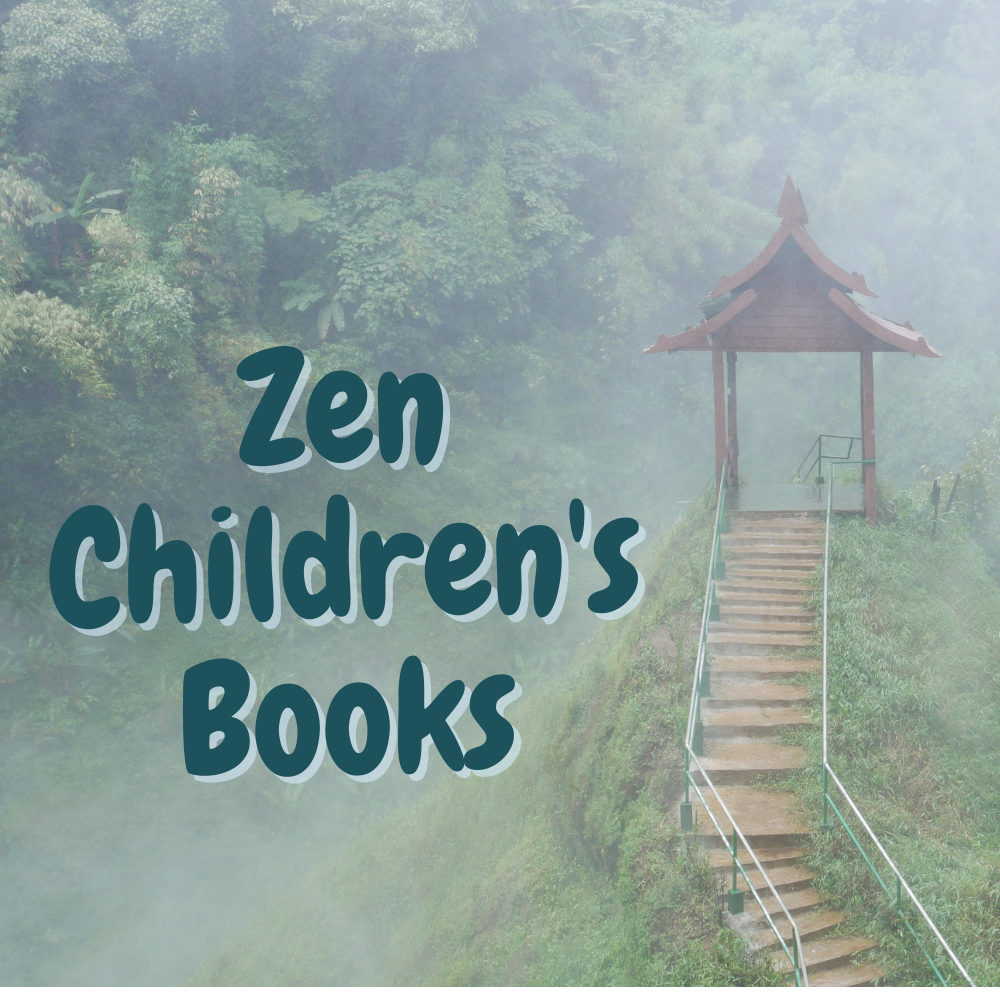
These Zen children's books can help your kids look at the world in a whole new, deeply connected way by introducing the seed concepts of the ancient philosophies of Buddhism, Taoism, and Zen.Here Come The Nothing HeadsIf Dr. Seuss, the

If Dr. Seuss, the Dalai Lama, and Jeffrey “The Dude” Lebowski walked into a bar… this might be what you’d get. An epic poem for children of all ages, Here Come The Nothing Heads is laugh-out-loud funny weaving threads from

Meditation is the art of becoming intimately familiar with the present moment.That's great when the present moment is like today's sit was. Perfect 76 degrees. The sun shining. The birds chirping. My mind was happy to cooperate. It's not always like
Lindsay Schultz 0:00
Fiction book that you've read that has not been made into a movie, what you see made into a movie. I'm
Speaker 1 0:16
trying to think what I know there's been completely drunk, drawing a blank.
Terry Lancaster 0:27
The Iran book of Atlas Shrugged, and they ended up making a movie out of that. I waited a long time for someone to make a movie out of that, drawing a blank. I'll come back to it. Alright? So
Lindsay Schultz 0:42
there's the Anne Brand Book, and I've got them on my shelf. There is the fountainhead anthem. And then I'm not sure what the other one is. That's the one, right? I think I made one of them into
Speaker 1 1:03
a movie. They weren't very good movies. Making good movie, movie out of this. I find that
Lindsay Schultz 1:10
happens a lot with books that I really, really love, and then they make them into the movie, and usually end up having that. Did you read the book? Yeah. Did you read the book? Because if you made this movie, you found me that you didn't read the book.
Terry Lancaster 1:27
I've come to accept, really, that the story, you know, making movies and writing books, there are two completely different kinds of storytelling and in books, books, books, to me, they were another Stephen King book that there was a great book and and several different books. The book, The Shining was, was a great book. And then And then, Stanley Cooper made this great movie. But those really have nothing to do with each other, the movie and the book that our paper there only tangentially related. And because, because Stephen Stanley Kubrick is such a great movie maker, he made it into this one thing, and Stephen King made it into this other thing, because the words are again, only there, deploying to what's beyond that, so everyone can muffle everything around however they want to. And so I really come to to come to try to accept movies as their own thing. And actually I prefer, I prefer to do it the other way now is I'll watch movies, and if they're good, I'll go read the book, because there's so much more the movies are like a little trailer. I can read, but I can, I can watch the movie and then go, Oh, I'm going to go deep in this and actually read the book, and like with Stephen King, if there's you know, if there's you know, one, one narrative in the story, in the movie, there's going to be at least 10 narratives in the book, because so much just goes deeper into psychological and so many things never even get get brought up in the movie. Hey, probably even spoken aloud. So much Stephen King takes place in someone's brain, they could make a movie out of the tribe,
Lindsay Schultz 3:03
right? I will say, I will say that 95% of the books that I read when they make a movie, it's like, oh God, here we go. But I will say that for me, one exception I can think of currently is where the cry at Sing, because I love that book so much. It is such a beautiful piece of fiction. It it is beautiful. It's there's no other way to describe that story. And so when I heard they were making a movie out of it, I thought, oh god, there's no way, there's no way that you're going to be able to translate the loveliness of this story onto a film and still have that fantastical, lovely sweetness and seriousness, you know, which is very much like, it's a very fine line. There's nobody that's going to come across in the in a movie. And so I went to go see it with my friend, who had all sort of the book, but we both were sitting there fully prepared for it to be horrible. Yeah, they did a fantastic job. I thought
Terry Lancaster 4:19
that we haven't read the book, but I didn't think the movie was
Lindsay Schultz 4:22
fantastic. Oh, the casting was perfect. It really, really was. And they they hit all of the high because I know when you're trying, when you're when you're taking a book to screen, the adaptation, they're starting to have to be left out, because you can't make a five hour movie. And I'm totally at that. But they picked all the bright highlights, they picked all the key points, and that's what they found. And the relationship between the gas station owner and the girl, you know, that delicate, beautiful, lovely friendship that they had with the husband, a wife and a girl, you know, I they did that really well. I just, I thought it was just amazing that they were able to transfer the loveliness of the story from book to screen. And they can't do that very often, because there are several authors that I've read. I'm sorry, oh, god no, don't do it. I think, like when you said with Stephen King's the shining, the book is terrifying, the movie is terrifying. But if you start comparing them, you lose something. I think
Terry Lancaster 5:37
they reach their own thing. And
Lindsay Schultz 5:40
I definitely think that there are some movies that are great, and then there are some books that are great. But sometimes, if it's from book to screens a book, you definitely lose something in the adaptation of it. So how did you get into writing like you know, I know that you have, you said that you majored in English, but like, how did you decide that you were going to start writing books? Like, how did that translate for you? Well, you know, I
Terry Lancaster 6:09
wrote, you know, in college and in high school, I dabbled with I started a million different little short stories and never finished anything. And so my first book was, I don't know, 12 years ago, 10 years ago. And I just, you know, I decided that, you know, midlife crisis, I guess. And I've been doing all these things. I've been thinking of myself as a writer. And I always, you know, when I graduated from college, my life goals were to retire early and write the great American novelist, to write a book. And at some point, I decided, Terry, if you think of dumb ass, if you're a writer, sit down and drive. And I just decided I was going to do it just and I didn't even start writing a book. I was actually I quit drinking. I quit drinking. I quit drinking. Also, I had more free time and freer brain. And I started, I started blogging a lot. I said, I started blogging and and I wrote this blog about self improvement, personal, personal improvement, and stuff that I was doing after I quit drinking, exercising more and eating right, and meditating and learning to get in touch with the nature of reality. And I wrote a blog post about that. I did that for a couple years, and at the end of a couple years, I looked at that, and, you know, I've got a couple 100 blog posts here, and I go, Hey, I'm no math major, but if I've got a couple 100 words blog post and a couple 100 of those, I should be able to put that together into a book. And so I said, long last, write the book I've been threatening to write for four years. So I took the that the original blog post, and started editing, editing those and building a format of that line. And and wrote a book called better self help for the rest of us, and it's
Speaker 1 8:13
about giving up the pursuit of perfection and just being who you are better. And so I wrote this book, and I thought, I thought it was a pretty, pretty original concept that you go into bookstores, everybody's writing self help books. They're already gorgeous, and they have beautiful teeth and six pack abs, and they all look like they need help, so for regular people. And I thought I had an initial kind of an original concept, but nobody's ever had an original concept, and this is what I discovered. But as that book that herself out for the rest of us that I thought he was completely original, it actually just takes a lot of ancient philosophy, and the philosophy of Kaizen, which is not so ancient, it was talked about in Buddhism and stoicism and some of these, some of these ancient philosophies that we that people live by until we get called up in the whirlwind and rat race of of the modern life, trying to be everything to everyone every day. And so this book, I wrote this book about simplifying the vices and being a better you, and that led me into more discovery of sin and the elimination of you
Terry Lancaster 9:22
trying of youth, I wrote the book for the self help. For the rest of us. Ended up writing this book that tells you there's there's no self to help. Oh no, no, I think there's always a self to help.
Lindsay Schultz 9:35
As I told this story from France too, when I told this story of friends too, when I got diagnosed with anxiety and depression, and trying to tell the people in my life, you know, this is I worry all the time and I freak out in years. And you know, it's hard to verbalize sometimes what that was. And then I read Tom Green's turtle all the way down. And I swear, if I ever meet John Green, I'm going to give him such a huge hug, because he's the He's the first person to ever have put into words and accurately verbalize my worry spirals. And so when I read that, turtles all the way down, and it's about a girl who has OCD and a couple other things, and she talks about her thinking process and how it spirals out of control, and the way she was describing it was just like, Oh my God, that's me. Somebody's finally been able to verbalize that. And I remember running it and shoving the buttermilk read this there right now. I don't care. Read it right now. You have to read it. And then it was at first time I was able to articulate this is what my brain is doing, and we're not going to be able to do that if someone else had not been able to find the words to write it down. So I love when you say it's not an original idea. Sure, it's not an original idea, but you took somebody else's words or thoughts and managed with them down in a way that somebody else, I guarantee you, is going to read that and be like, Oh my God, that's me. I totally get what you're saying. Yes, this is it. And I love that about all the me writers. And I tell so I tell all the I'm also an accountability manager for a book publishing Academy. And I tell all of me writers that I coach, look, you're not and and I heard this at the conference that I went to enable, and I've said it multiple times, you're not writing your book for you. I mean, you are, but you're also writing your book for someone who is going to read that book and be hid like a ton of bricks with, oh my god, this is me. Someone is going through the same thing and has been able to work a life, and this is me, holy crap, and that is going to change their life. And that's what I really love about all of the writers that I talk to every time, is you're going to write something that's going to change.
Terry Lancaster 12:20
Yeah, I understood that as a self published author, this is not going to be picked up in New York time. That wasn't the intention. I said, if somebody, if some person, reads this book and makes some positive changes in their life and sends me a nice note that's mission accomplished? Well, it's got 119 reviews, box star reviews, telling people don't exactly that. It's changed. The line changed their life and as as a writer and with your company, nothing is especially because it's it's a different time before Nothing excites me. That's nothing makes me happier than a person that comes with it and says, Hey, I read that here. I thought it was just some silly children's book, and I started reading it. And then I realized, oh, there's something else here. Read a few more pages like, oh. So when people Yeah, when people smell like the rock is cooking, I
Lindsay Schultz 13:23
I love that. I love that, and I love that you have that many positive reviews, because it is an amazing book. It truly, truly is. I was trying to think of what was my favorite part, and I literally came up with one, because it's, it's just so good. And I just I love it's one of the things that I really love about learning this bookstore and doing this podcast and getting to know all of you guys, is that getting to know all of you guys, you just had such an amazing effect on my life, because your words are so good. And I keep telling you, I keep telling people, every single time that I see a remake of a movie or I see something that's been redone 5000 times, I just want to coin my bookshelf. I have all your books and go. But really, no, no, we're almost out of time. So last question, anything that you could impart on your readers that you would want them to take away from your books? What would it
Terry Lancaster 14:39
be? All of my actually asked that question. So I sat down when I was releasing here company nothing is last year, I've written down four books, and I decided I needed to coalesce those into into the publishing company. I needed to get serious about marketing these books and giving these ideas and giving these words and stories out there. So I formed the publishing company called the Coalition for human kindness, abiding in kindness for ourselves, for others and for the world around us. And if you want to read any of my books and better stuff up for the rest of us, I look for the I tried to find the theme that was narrated and going through all of those. And I decided that the thing was be kind. So the website for their oldest agreement kindness is the be kind club. Is be kind club org. And so the message, if you take away one thing from anything I've written, is to be kind. Now here, here's the trick. You can't be kind if you're trying to be kind, then you're trying to do something and you're and you're separating yourself from a person that you're being kind to. Being kind isn't about isn't about doing kind thing. It's about random acts of kindness. Being kind is abiding in kindness, about losing the separation of yourself, your others, the world around you, and just living in love, living in kindness, living
Lindsay Schultz 16:07
in joy, I love that that's such a great that's such a great way in this Terry, thank you so much for sitting down with me today and just kind of having a conversation with me. And I love every single conversation I have with you guys for these podcasts, every single one goes a completely different, unexpected way. And I really, really love that. So thank you for making our philosophical journey today. Thank
Terry Lancaster 16:33
you. You're my hero. We sit in our rooms and bang on our keyboards and every once, along with a warrior who's, who's who's willing to help us get the words out there. And I'm very thankful Thank you.
Lindsay Schultz 16:49
Oh, well, thank you. You're gonna make me cry. Well, Terry, thank you so much, and I hope that you have a great rest of your day. And I look forward to your next book, and I want to thank all of our listeners for tuning in to another episode of these fun book, cats, carnivals and workshop, and you can pick up Terry's book at our website, these fine bookshops.com and thank you guys so much for listening. I hope you all have a great day and happy reading.



